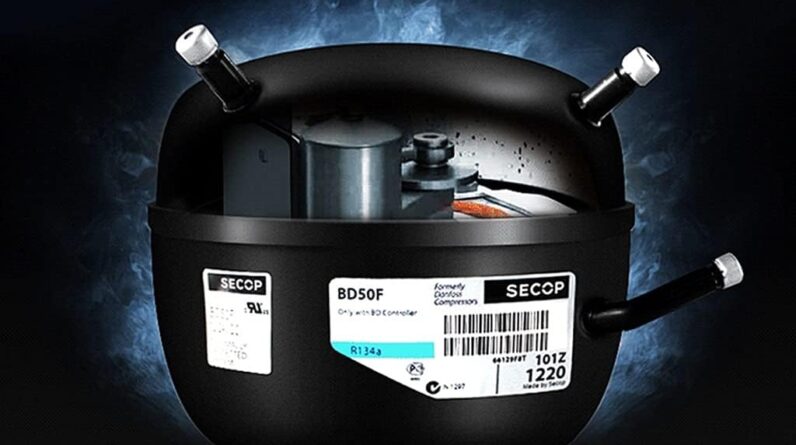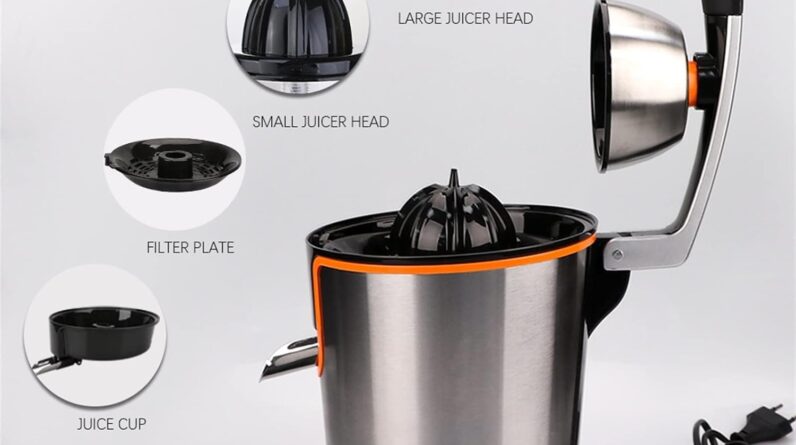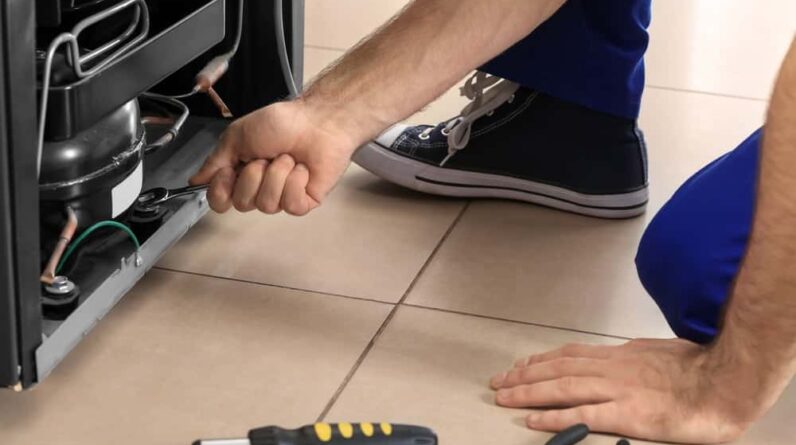
Is your noisy refrigerator driving you crazy? Don’t worry, there are simple and effective solutions to reduce its noise and bring peace back into your kitchen. In this article, we will explore some practical tips and tricks that you can easily implement to silence your chatty fridge. From adjusting the temperature settings to inspecting the condenser fan, we’ve got you covered. So, say goodbye to that relentless humming and buzzing, and get ready to enjoy some serene moments in your kitchen once again.
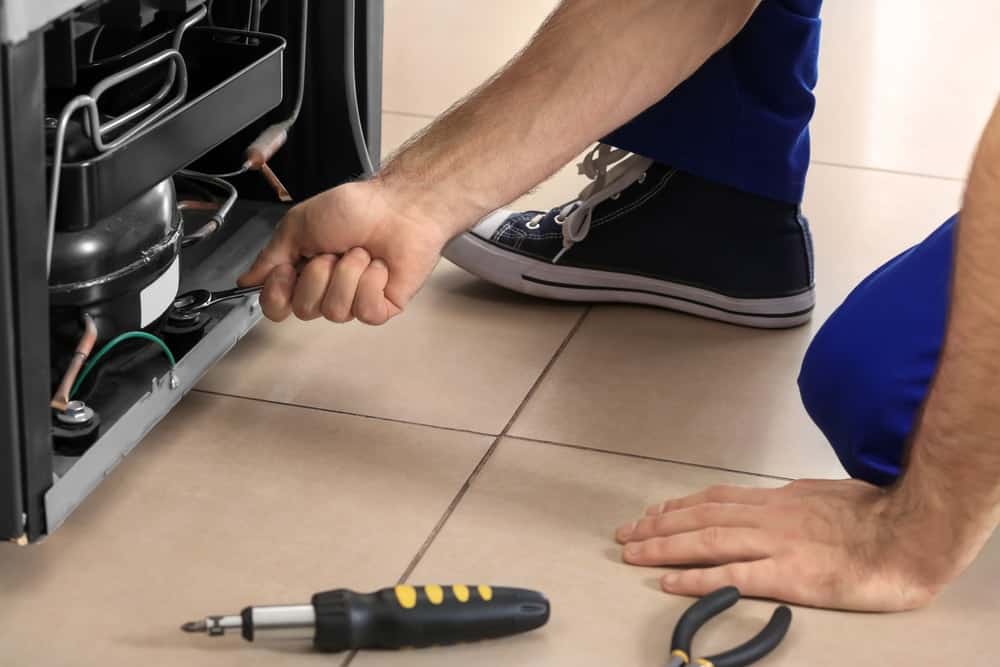
1. Clean the Condenser Coils
One of the main causes of a noisy refrigerator is dirty condenser coils. Over time, dust, dirt, and grime can accumulate on the coils, hindering their ability to release heat effectively. This can lead to the refrigerator working harder, which in turn creates more noise. To clean the condenser coils, start by unplugging the refrigerator and locating the coils. They are typically found at the back of the fridge or beneath it. Gently vacuum or brush the coils to remove any debris. Be careful not to damage the delicate fins of the coils. Cleaning the condenser coils regularly can make a noticeable difference in reducing the noise produced by your refrigerator.
2. Level the Refrigerator
An uneven refrigerator can cause excessive noise, as it may vibrate or rock during operation. To level the refrigerator, start by using a spirit level to check its balance. If it’s not level, adjust the legs or feet of the refrigerator until it sits evenly on the floor. You can use a wrench or pliers to raise or lower the feet as needed. Once the refrigerator is level, the noise caused by vibrations and rocking should diminish significantly.
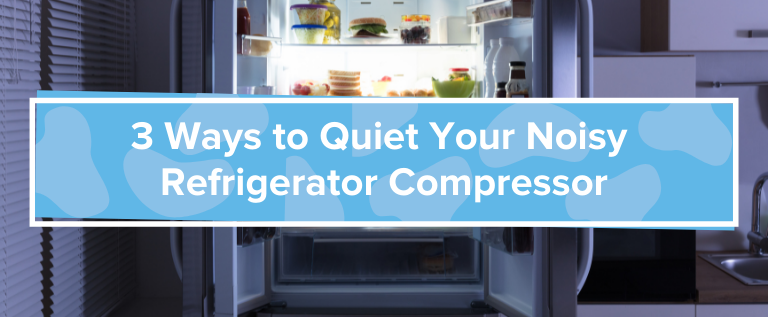
3. Check the Evaporator Fan
The evaporator fan is responsible for circulating cool air throughout the refrigerator. If this fan becomes damaged or clogged, it can cause loud noises. To check the evaporator fan, first, ensure the refrigerator is unplugged. Locate the fan, which is usually located inside the freezer section. Inspect the blades for any signs of damage or obstruction. If the blades are damaged, they will need to be replaced. If there is an obstruction, carefully remove it and clean the fan blades. A clean and well-functioning evaporator fan can greatly reduce the noise level of your refrigerator.
4. Replace Worn-out Parts
Sometimes, the noise from a refrigerator is due to worn-out parts that need to be replaced. Here are some common parts that may require replacement to reduce noise:
4.1. Replace the Evaporator Fan Motor
The evaporator fan motor is responsible for driving the fan that circulates cool air in the refrigerator. If this motor becomes worn out or damaged, it can cause loud noises. To replace the evaporator fan motor, consult the refrigerator’s manual or contact a professional technician for assistance. Once the motor is replaced, you should notice a significant reduction in noise.
4.2. Replace the Condenser Fan Motor
The condenser fan motor is responsible for cooling the condenser coils. If this motor malfunctions or wears out, it can lead to excessive noise. Replacing the condenser fan motor follows a similar process as replacing the evaporator fan motor. Refer to the manual or seek professional help to ensure proper installation. By replacing the condenser fan motor, you can eliminate the noise associated with a faulty motor.
4.3. Replace the Compressor
The compressor is an essential component of the refrigerator’s cooling system. If the compressor is faulty or worn out, it can cause a variety of noises. Unfortunately, replacing the compressor is a complex task that often requires professional assistance. Consider consulting a qualified technician to determine if a faulty compressor is the cause of the noise and to explore potential solutions.
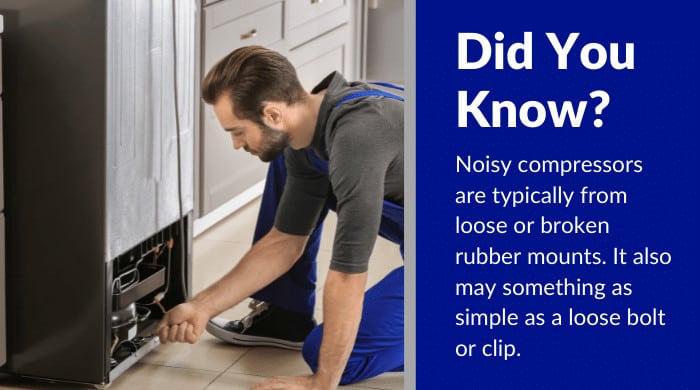
5. Use Anti-Vibration Pads
Placing anti-vibration pads under the refrigerator can help absorb the vibrations generated during operation, significantly reducing noise. These pads are made of rubber or foam and act as shock absorbers. To use anti-vibration pads, simply lift the refrigerator slightly, slide the pads underneath each foot or leg, and carefully lower the refrigerator onto the pads. This simple step can make a noticeable difference in reducing the noise emitted by your refrigerator.
6. Place the Refrigerator on a Stable Surface
Another factor that can contribute to a noisy refrigerator is an unstable surface. If the refrigerator is placed on an uneven or unstable surface, it can create vibrations and rocking motions that result in noise. To ensure stability and reduce noise, place your refrigerator on a sturdy, level surface. Avoid placing it on carpeted or uneven floors, as these can exacerbate the noise produced by the appliance.
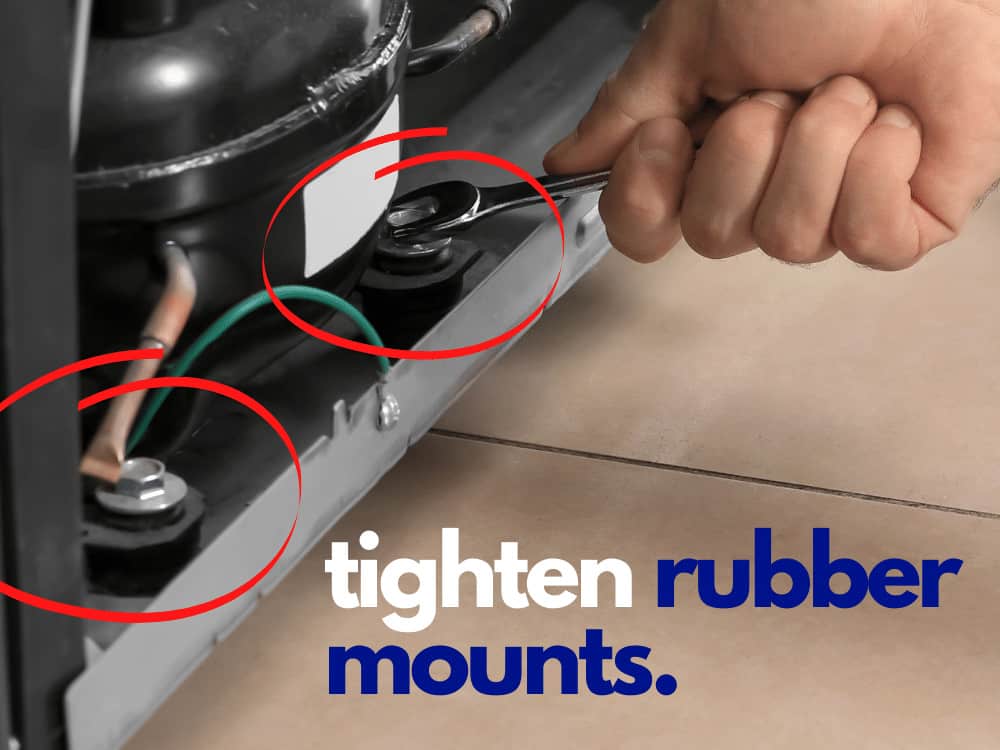
7. Insulate the Refrigerator
Insulating your refrigerator can help dampen the noise it produces. One way to achieve this is by using soundproofing materials. Apply soundproofing foam or insulation to the walls and back of the refrigerator to reduce noise transmission. Ensure that the materials used do not obstruct any vents or airflow. By adding insulation, you can create a quieter environment in your kitchen.
8. Adjust the Temperature Settings
Sometimes, simply adjusting the temperature settings of your refrigerator can help reduce noise. The compressor and fan motors often work harder when the refrigerator is set to lower temperatures. By slightly increasing the temperature settings, you can lessen the workload on these components, resulting in reduced noise. However, ensure that the adjusted temperatures still maintain the freshness and safety of your food.
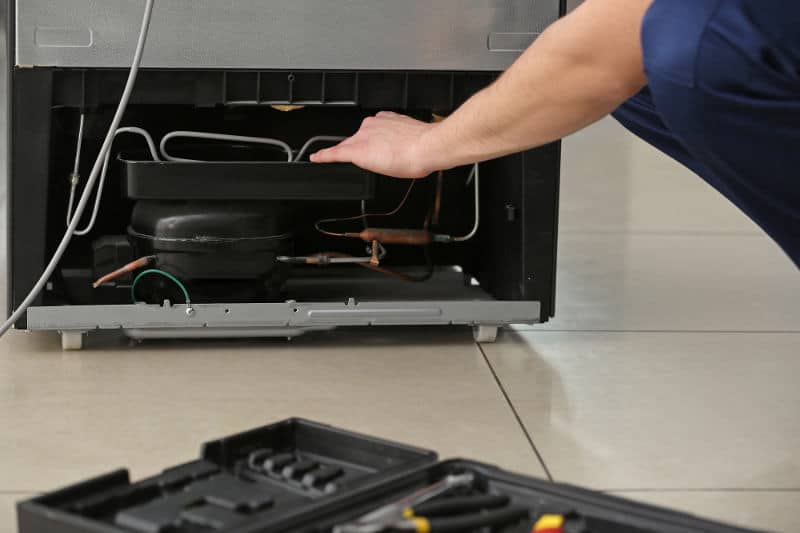
9. Keep the Refrigerator Filled
Believe it or not, the amount of items inside your refrigerator can impact its noise level. When a refrigerator is sparsely filled, there is more empty space for air to circulate, which can lead to increased noise. To reduce noise, try to keep your refrigerator reasonably filled, but not overcrowded. This helps minimize the empty spaces and allows for more efficient airflow, decreasing the workload on the refrigerator’s components and reducing noise output.
10. Check for Proper Ventilation
Inadequate ventilation can contribute to increased noise levels in your refrigerator. Ensure that the vents around and behind the refrigerator are not blocked by any objects, such as boxes or kitchen utensils. Good air circulation aids in dissipating heat and maintaining the optimal functioning of the refrigerator. By checking and maintaining proper ventilation, you can help prevent excessive noise caused by poor airflow.
To conclude, reducing the noise of your noisy refrigerator involves several steps, from regular cleaning of the condenser coils to checking and replacing worn-out parts. Additionally, leveling the refrigerator, using anti-vibration pads, insulating the appliance, adjusting temperature settings, keeping it reasonably filled, and ensuring proper ventilation can all contribute to a quieter refrigerator. By following these steps and considering the specific needs of your refrigerator, you can effectively reduce noise levels and create a more peaceful environment in your kitchen.


